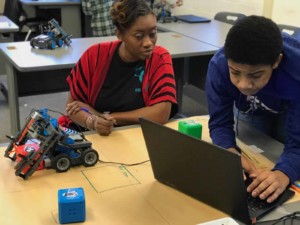Challenges & Recommendations
The good news is that solutions already exist in the ecosystem and they just need to be combined and scaled… the bad news is that this is complex work.



Challenges
The vast majority of formal learning for young people is experienced within structured, in-system schools. While a number of districts and schools (see Canopy Project) have undergone redesign (or launched new schools) to move towards more personalized approaches that incorporate a broader learning ecosystem, very few systems have completely unbundled. While the pandemic increased the number of school choices, they often were built within a private, fee-based environment. Demand for more personalized unbundled experiences continues to outpace supply (see Choose to Learn report).
Remaining Core Challenges:
- Financial: Unbundled models must increase flexibility to give learners a much wider variety of choices. Ideally this happens within the public system to ensure maximum access.
- Outcomes: Fully operational unbundled systems require decisions around outcomes.
- Security: In unbundled systems, data on learners will be outside of the control of centralized systems. Ensuring security and privacy through self-sovereign technology solutions increases adoption and trust.
- Trust and Quality: Allowing for any individual or organization to provide learning experiences comes with freedom and a reduction in rigid certification requirements. Building systems for quality feedback and effective improvement for providers is required.
- Assessment: Unbundled systems need to create processes for verifying learning. Disconnecting assessment from learning (similar to existing AP or IB systems) would increase accountability for the provider.
Recommendations
Solutions already exist in the ecosystem and need to be combined and scaled. Funding models (like My Tech High), badging/credentialing at the competency level (like VLACS), coaching models (like Big Thought), and open ecosystems (like NH Learn Everywhere) provide an excellent foundation. Thus, building unbundled systems has already begun but needs systemic changes to become widely available and accepted.
- Build a robust competency-based system. Unbundled systems require dismantling the Carnegie unit and time-based credit systems. Every state should ensure that there is adequate legislation to allow for subdividing credit and awarding credit upon mastery. See Aurora Institute policy recommendations.
- Create a two-way marketplace for unbundled learning. A decentralized marketplace for all learning experiences or multiple marketplaces that are interoperable build the foundation for an unbundled learning ecosystem. The ability to both take (learn) and give (teach), akin to today’s centralized marketplace owned by technology firms, will drive quality, opportunity, and access.
- Implement policy to support credit for out-of-system experiences. Connecting verified out-of-system learning with in-system credit increases access to robust learning experiences for every student. A number of states allow for credit for work-based learning. This model can serve as a foundation to expand opportunity in this space. See other policy examples here.
- Invest in technology infrastructure for Learning and Employment Records. The industry is still in the early exploratory phase with Learning and Employment Records built on blockchain models. Work on security, efficiency, stability, and self-sovereignty must continue in order to develop this space.
- Design interoperable badging systems that connect to credentials. Competency-based systems should tie to badging and credentials that are verified and valued by future employers. It will be critical to further efforts around Open Badge and Comprehensive Learner Record (CLR) standards, as well as connections to post-secondary education (including higher education) and employers.
We Value Your Feedback!
Thank you for checking out our Unbundled Learning White Paper. We’d really appreciate your feedback on how to make these resources more valuable in the future – please submit the form below if you have a spare two minutes.

